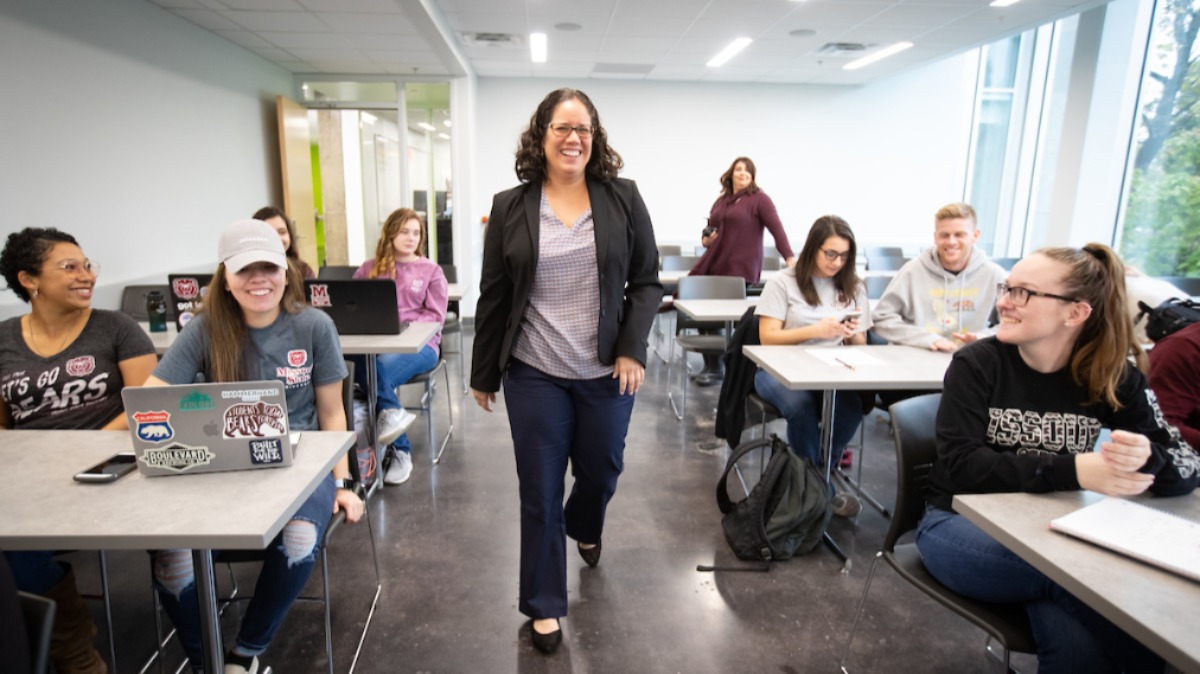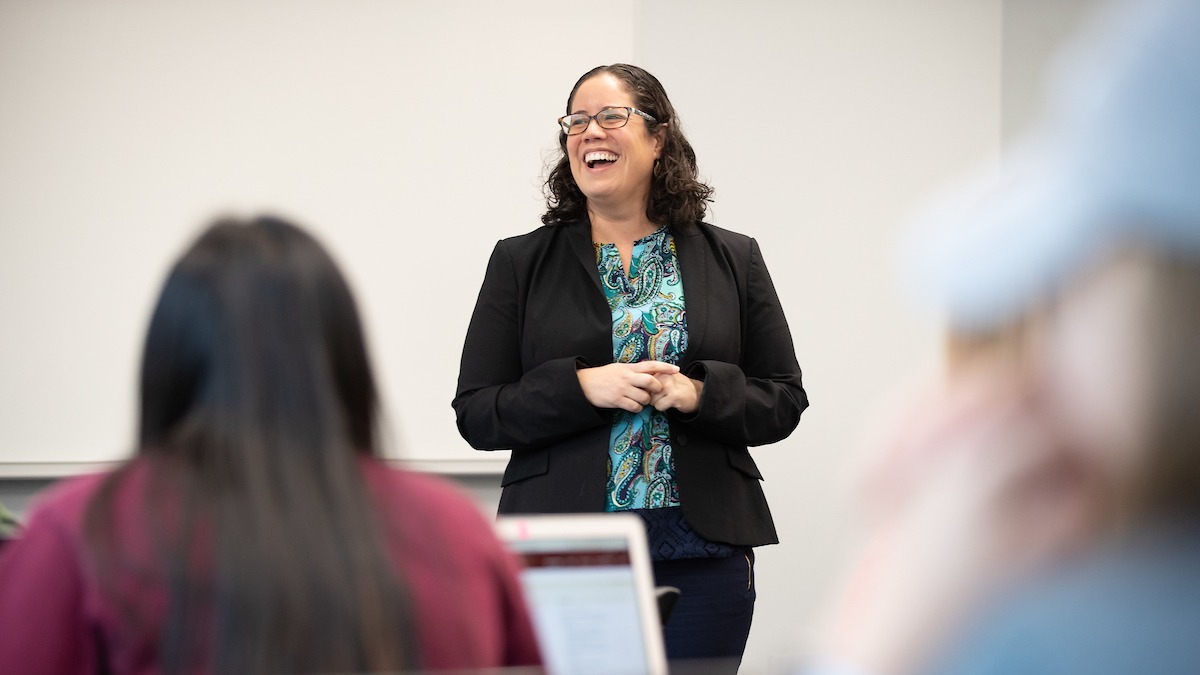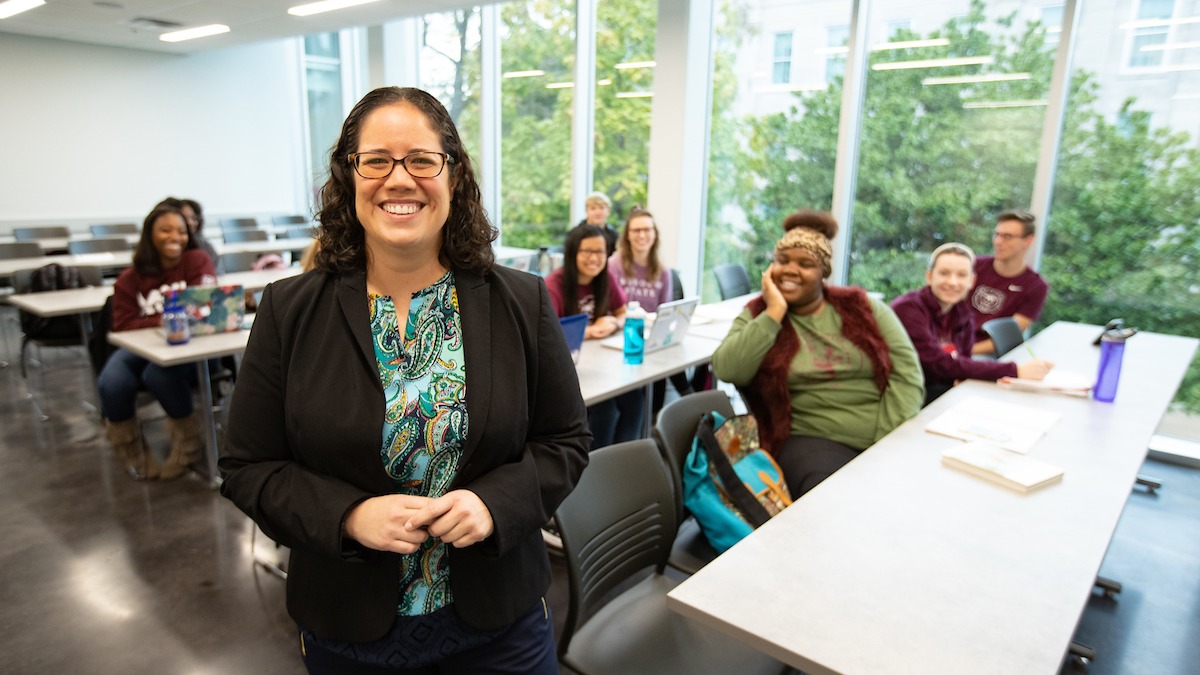The world and workforce have diverse needs. This makes it crucial that individuals from diverse backgrounds receive a say in how they operate.
A primary goal of faculty in the department of hospitality leadership at Missouri State University is to embrace different perspectives. This can lead the field to new and better ideas for the industry’s operations.
Among those leading this practice best at Missouri State is Dr. Liza Cobos, assistant professor of hospitality leadership.
She has a wide range of experience working in both education and the industry. Cobos recognizes the value diversity brings to the learning environment she shares with her students.

Making transitions more manageable
Cobos understands that students of varied background also bring varied concerns. These concerns can make the transition into college life difficult.
Some may overcommit and feel unable to balance their school, work and personal lives.
Cobos schedules time for one-on-one conversations with each of her students to help address this struggle, she explains.
“Students may need help narrowing their focus or understanding an assignment,” Cobos said. “Sometimes, they may even just need to vent or gain a different perspective on their concerns.”
When providing such perspective, Cobos strives to remind students of their goals. This can be key to helping them refocus and organize tasks.
“The most important things students can learn are the importance of embracing a time management technique, prioritizing their work and checking their email often,” Cobos said. “I always share this advice with my students because, like other professors at MSU, what I want most at the end of the day is to see them succeed.”
Get tips on transferring to Missouri State
Finding value in varied experience through online learning
Cobos has several years of experience with online teaching.
She began with teaching blended–learning programs. But Cobos later led classes in a community college’s fully online program.
Teaching in the online program exposed Cobos to new learning practices, as well as students from more diverse backgrounds.
“The community college included traditional students who were recent high school graduates. But it also had many others who had taken a break from school or wanted to earn the degree needed to switch careers,” Cobos said. “Working with these students taught me to incorporate different types of assessments in my classes. Then, I could account for their varied yet equally valuable experiences.”
Cobos continues to use many assessments in the undergraduate and graduate-level online classes she now teaches at MSU. They allow her to pull from different perspectives and interests, which fuel different ways of learning.
Her classes include:
- HSP 210 Essentials of Hospitality Leadership.
- HSP 310 Analyzing Financial Performance in Hospitality Operations.
- HSP 720 Hospitality Change Management and Leadership.
Cobos stresses that online learning offers students flexibility in meeting their diverse needs. This is especially valuable to those who have families or work full-time.
“Online courses allow students to meet their education goals without having to be on campus or in class in the middle of the workday,” Cobos said. “They can review the materials and complete assignments at the time that best fits their schedule.”

Connecting theory to practice
In the hospitality industry, it’s important to understand how things work both on the front lines and behind the scenes of operations.
Cobos has served several unique roles in both areas, including those in management. This lends itself well to contributing different perspectives of how things work in the industry.
“As management involves the key task of training, it taught me to connect pieces to understand the big picture,” Cobos said. “I always share this understanding with my students by having them consider the managerial decisions they could make using the concepts we learn in class.”
Cobos adds further context to concepts by sharing real life examples of their use in industry. Her students engage with these examples through class discussions and other interactive activities.
These aspects of her classes help her bring their material past the pages of textbooks and into the realm of real-world applications.
“Connecting theory to practices in the workforce is key to teaching students the operations of the field,” Cobos said.

